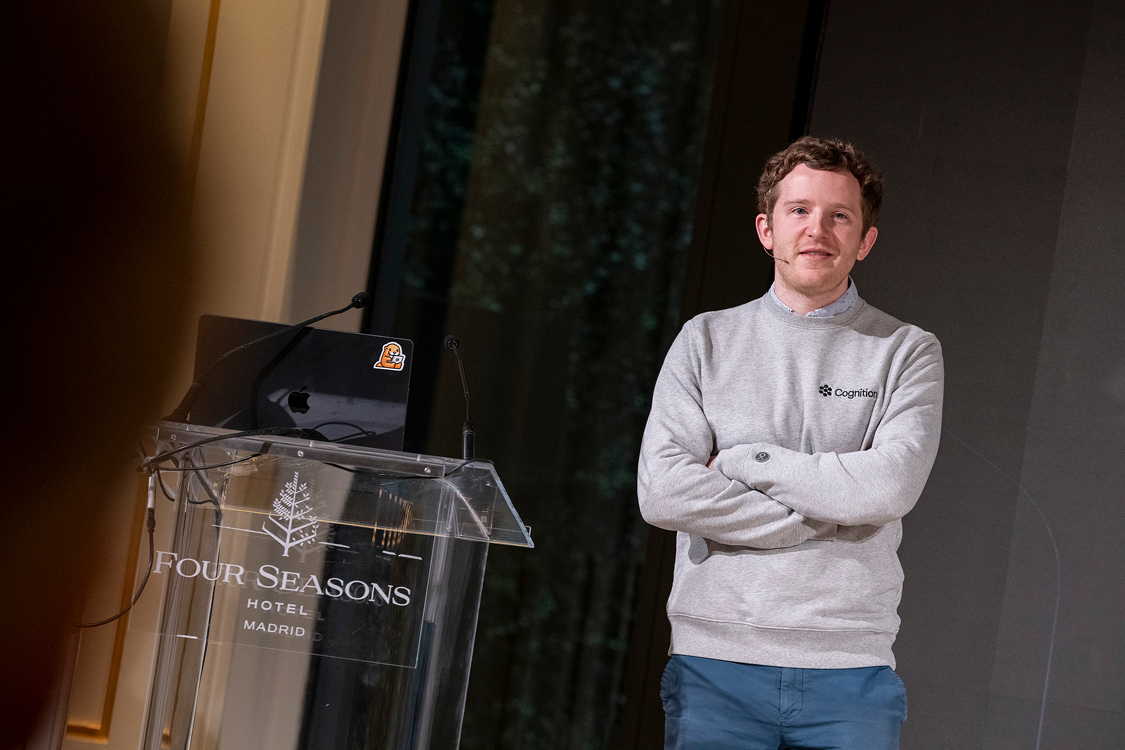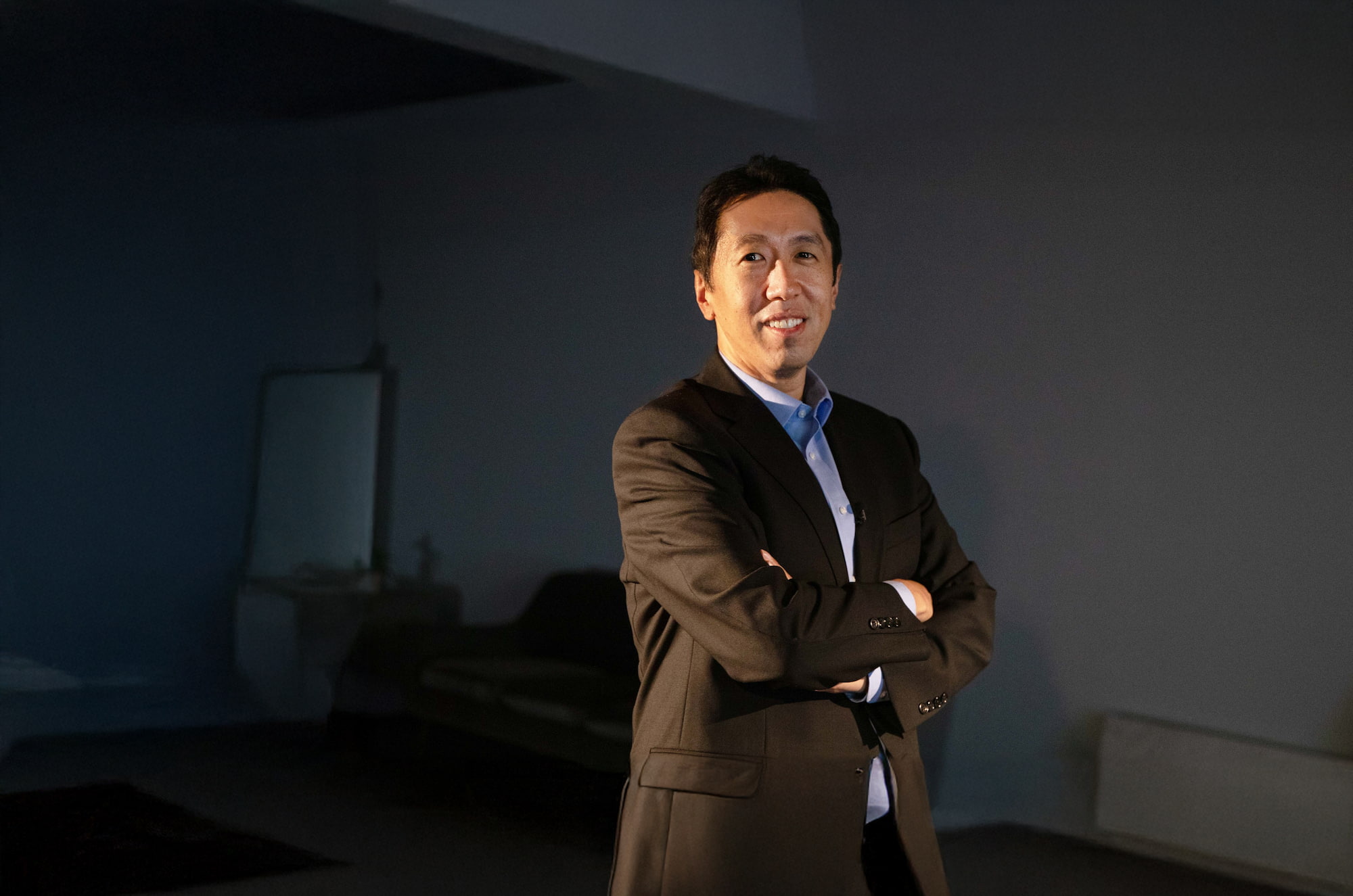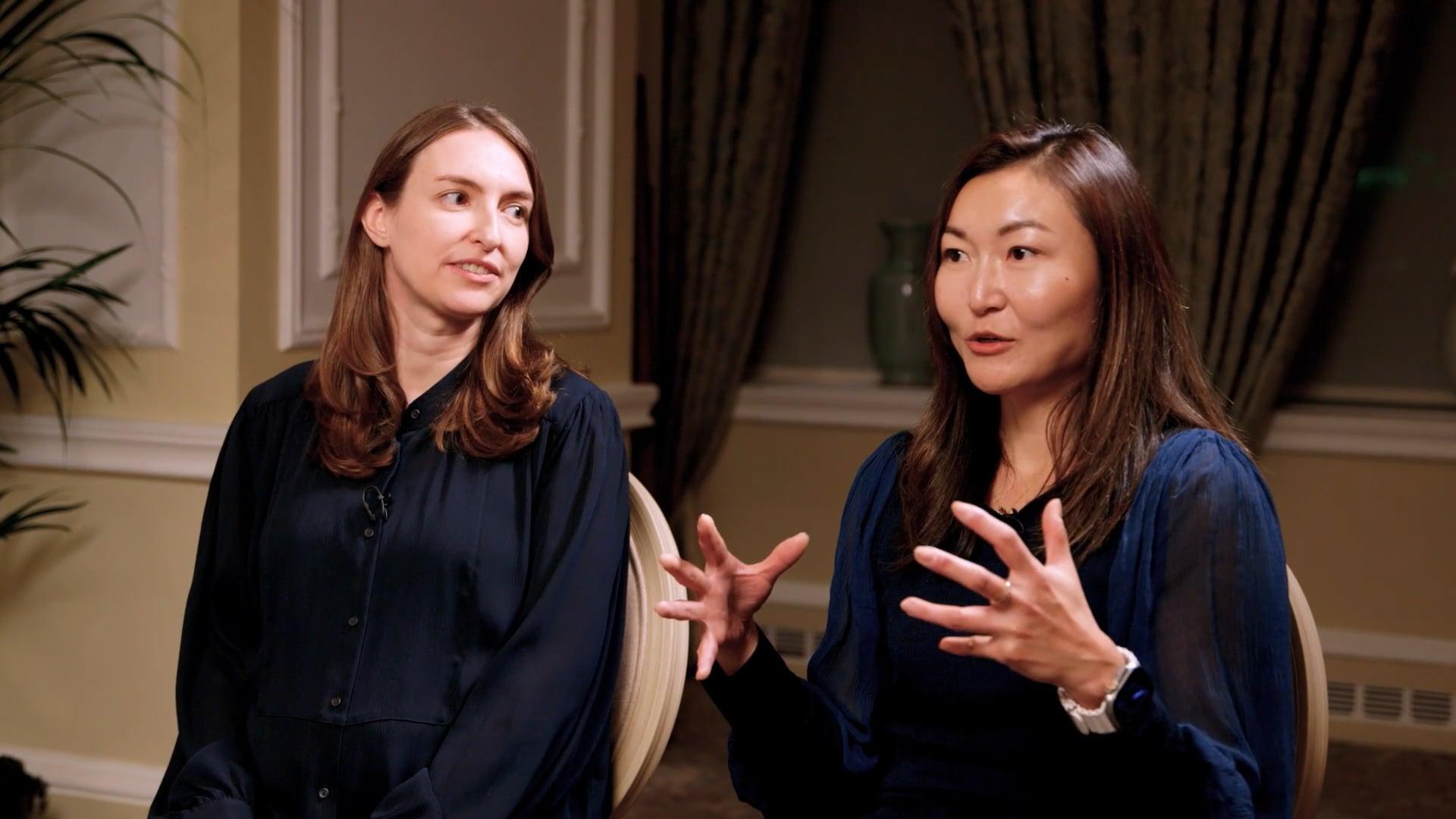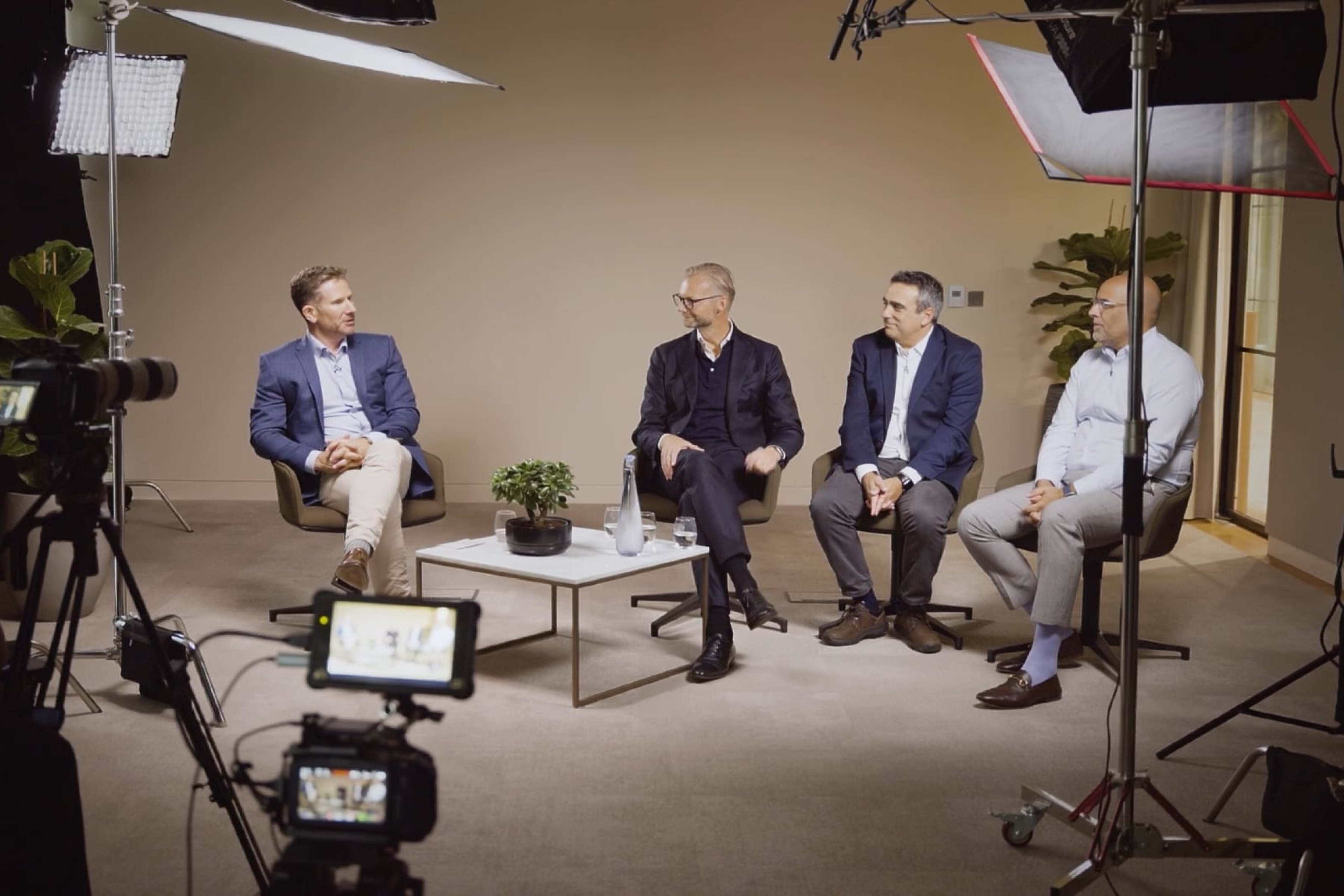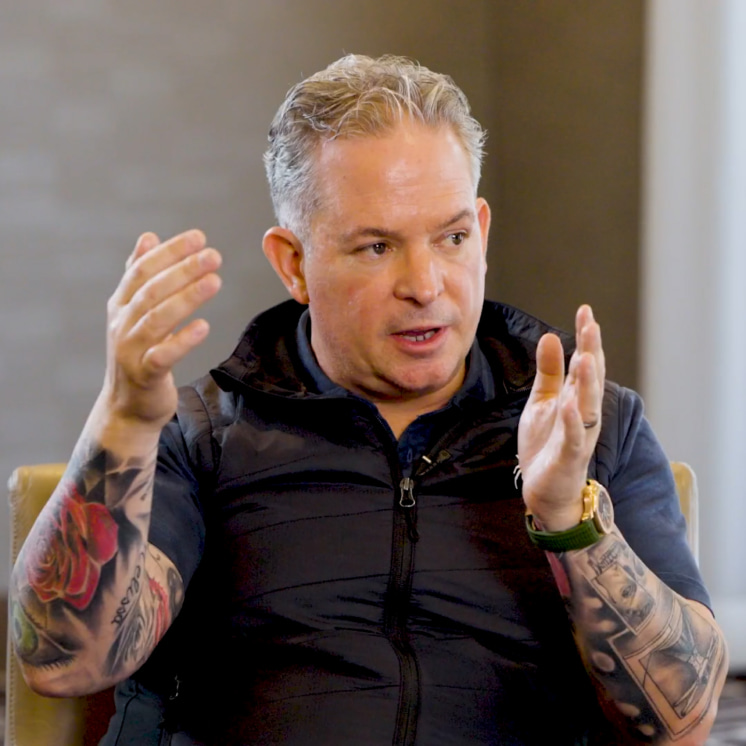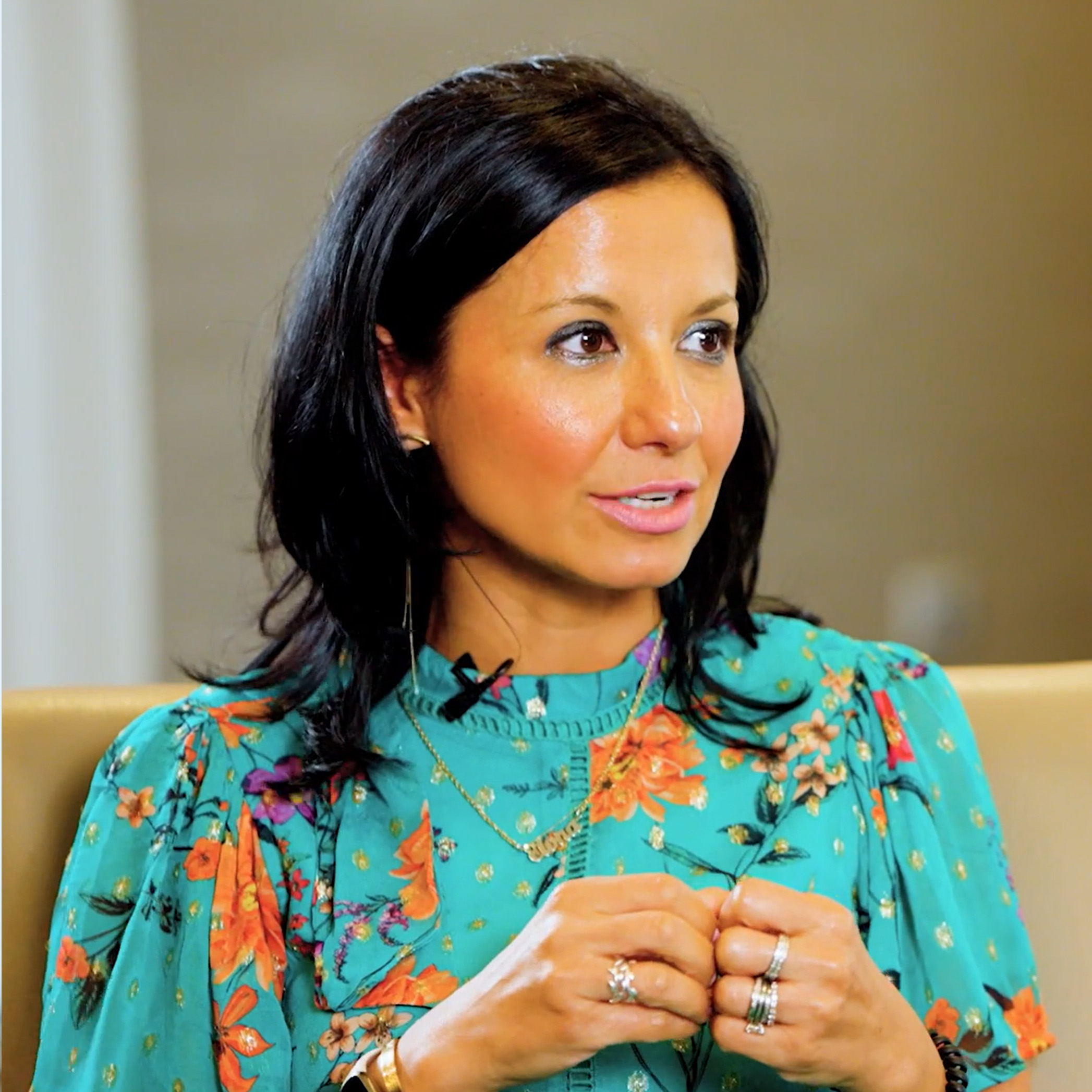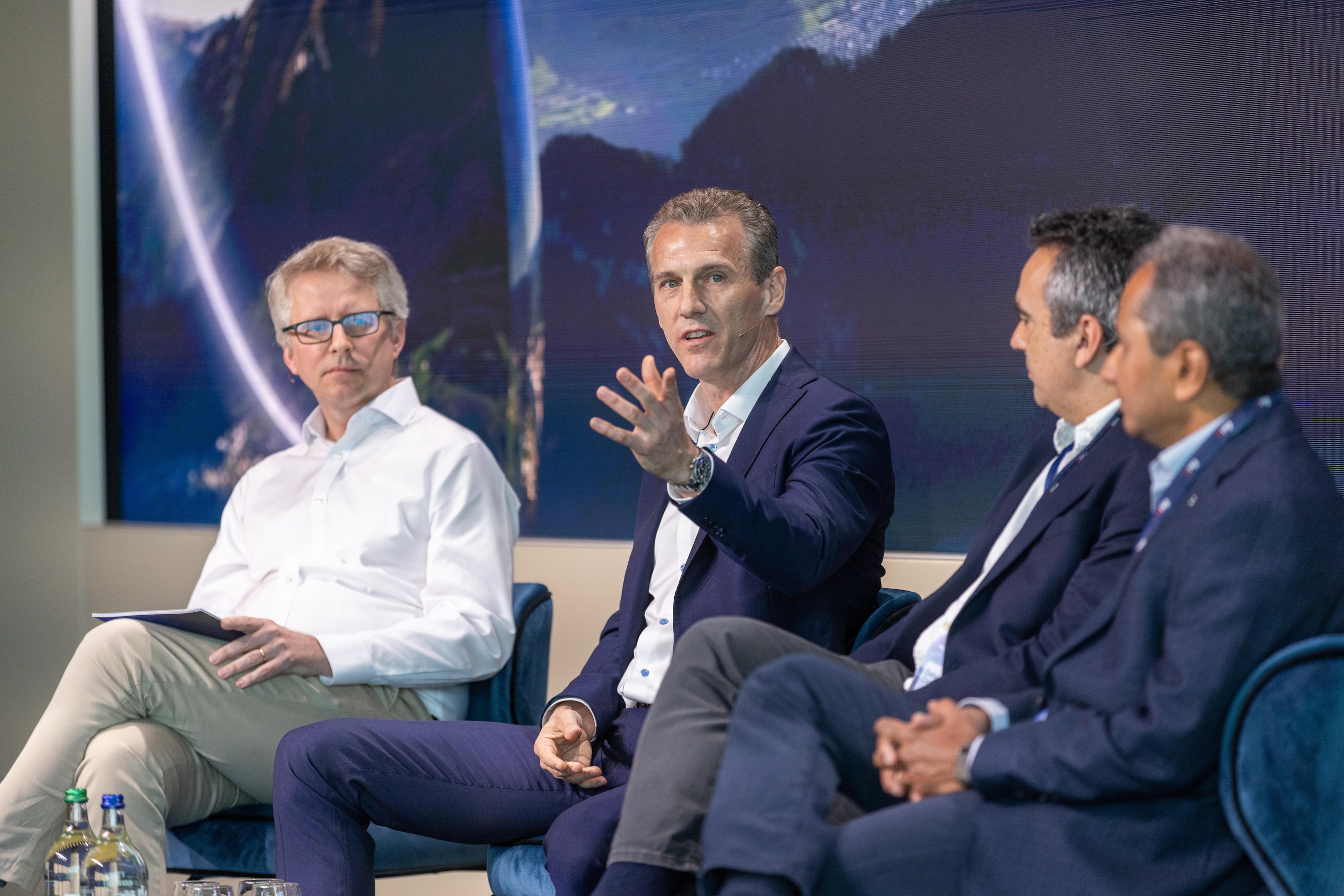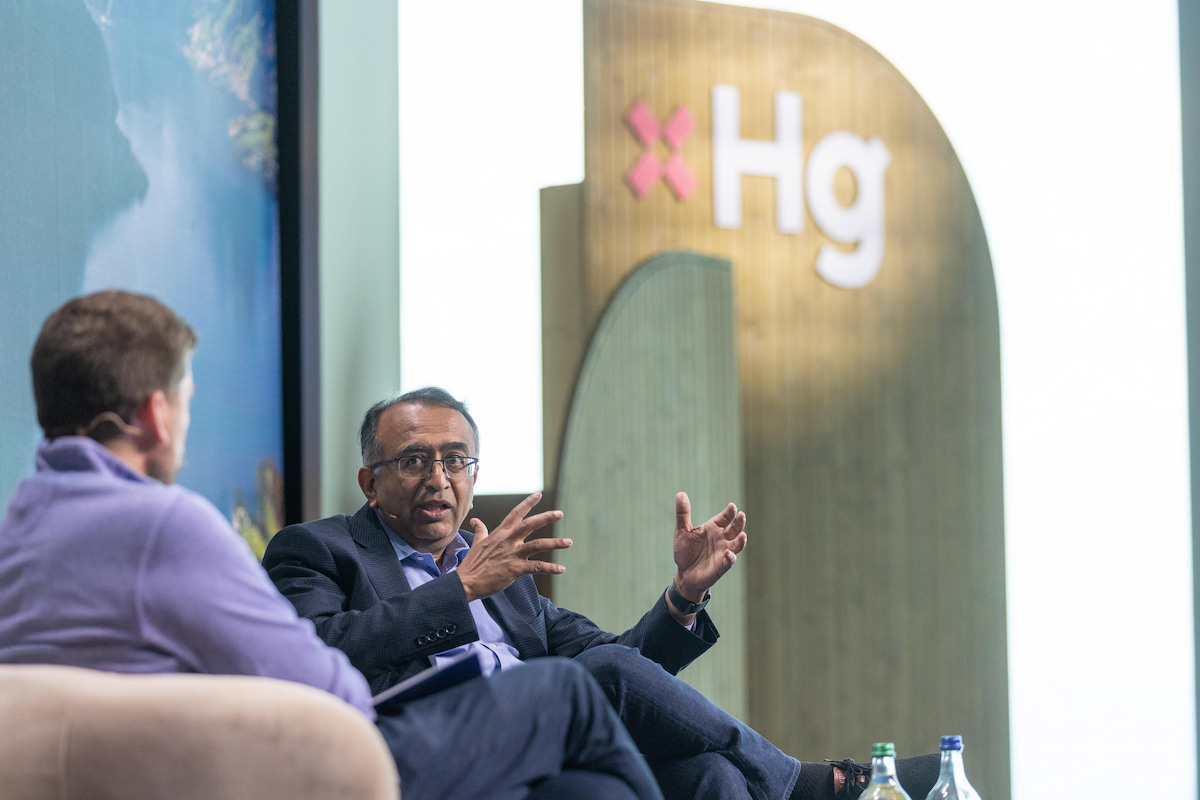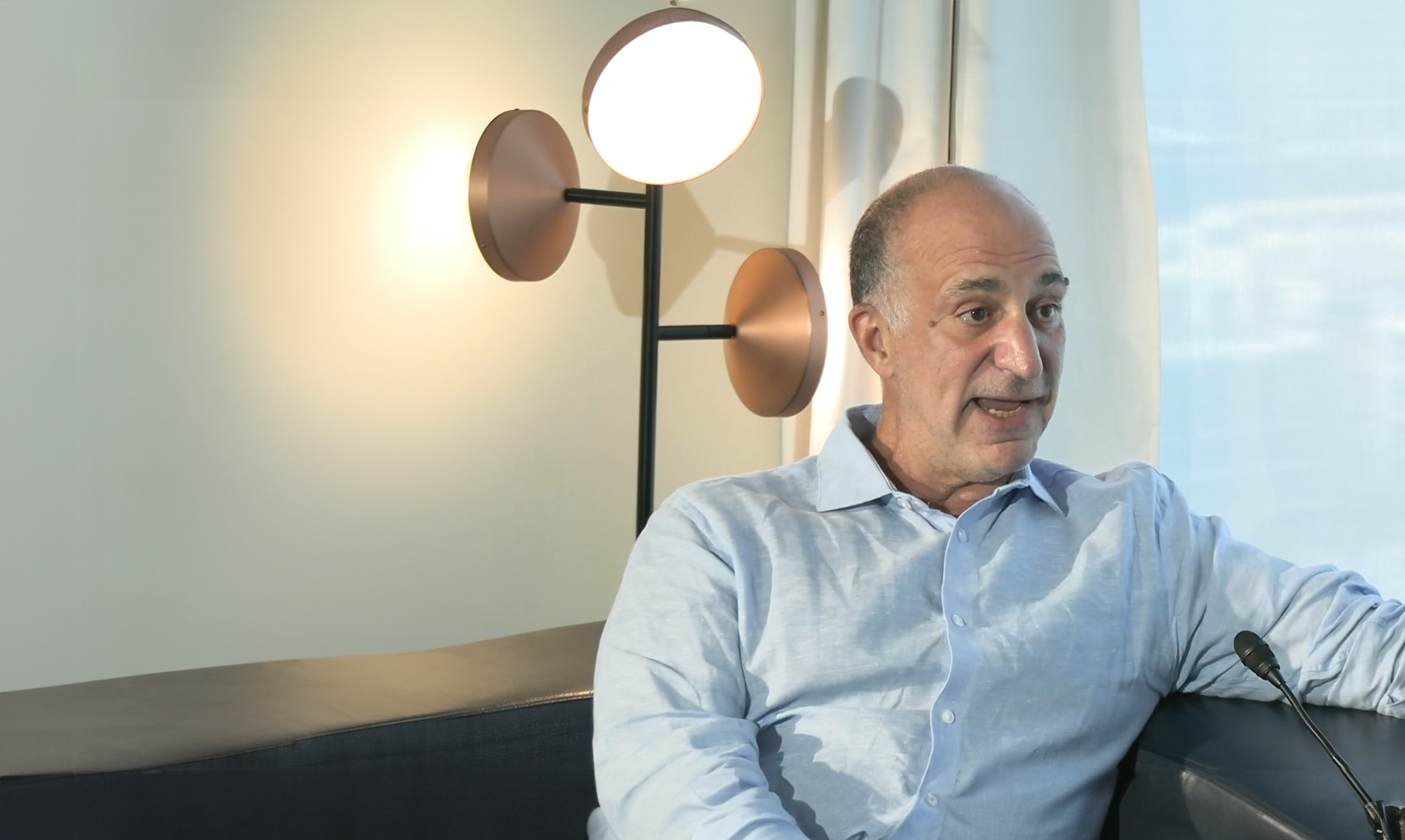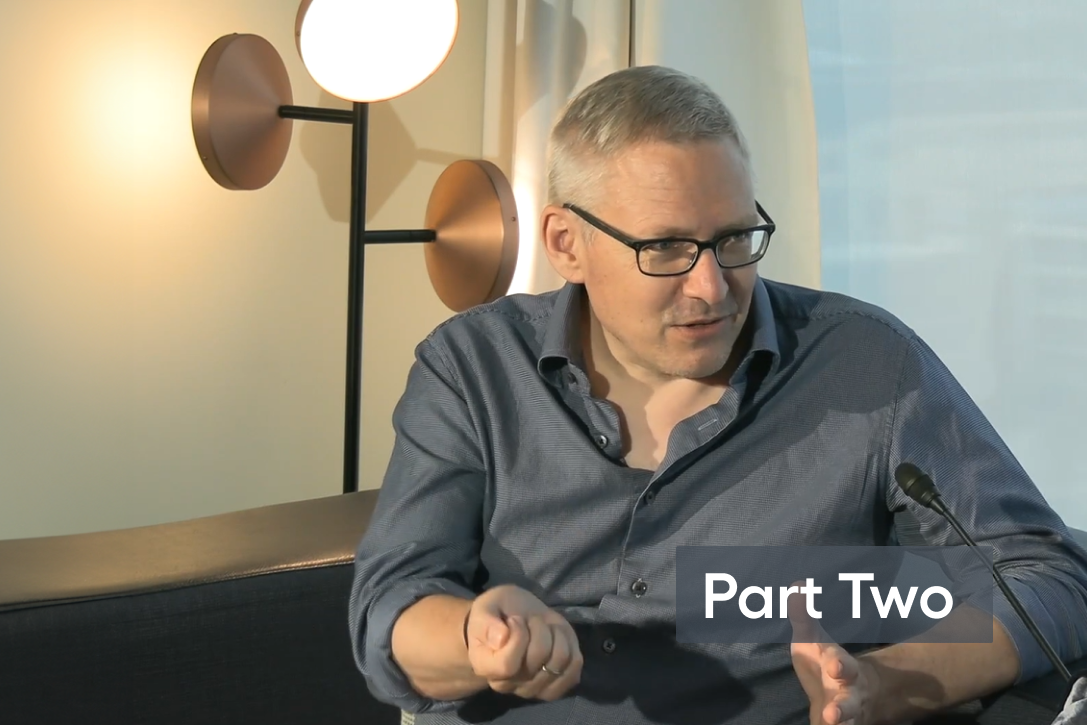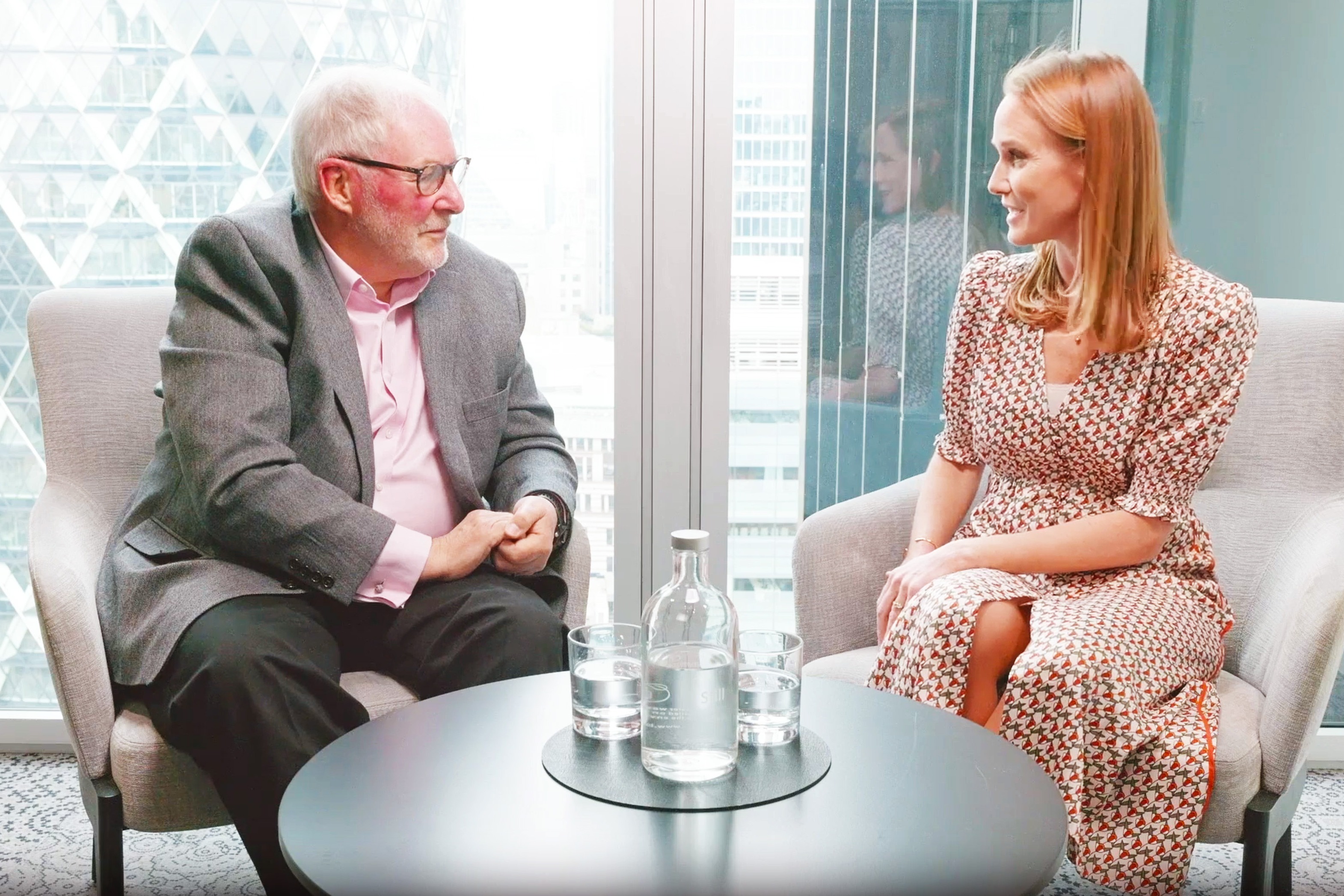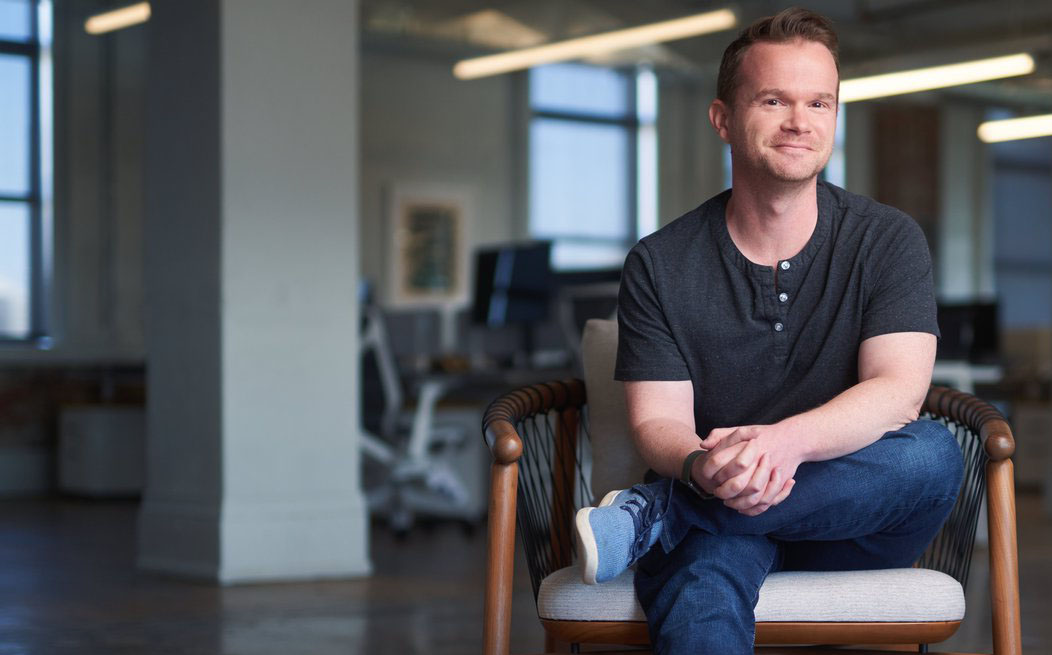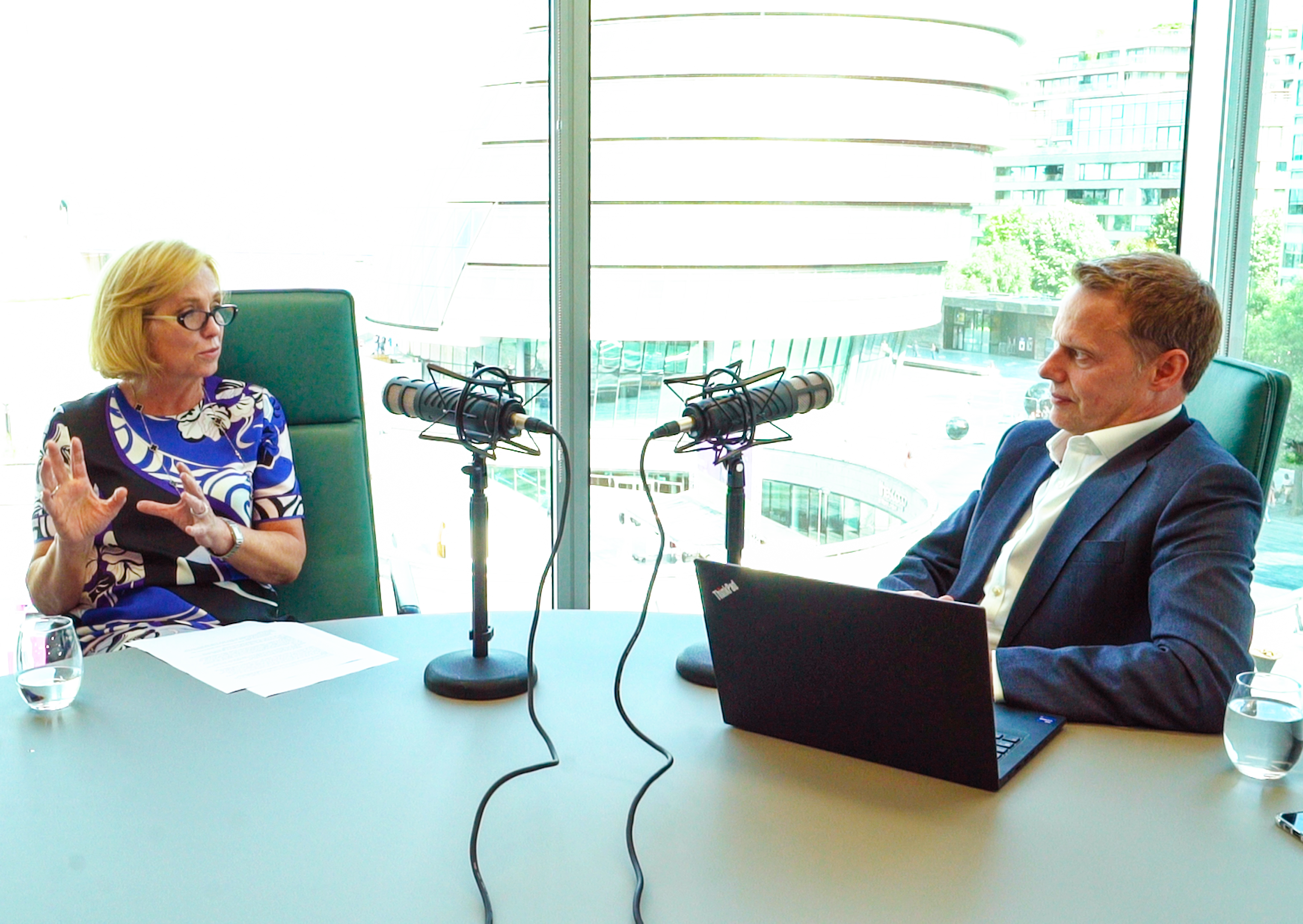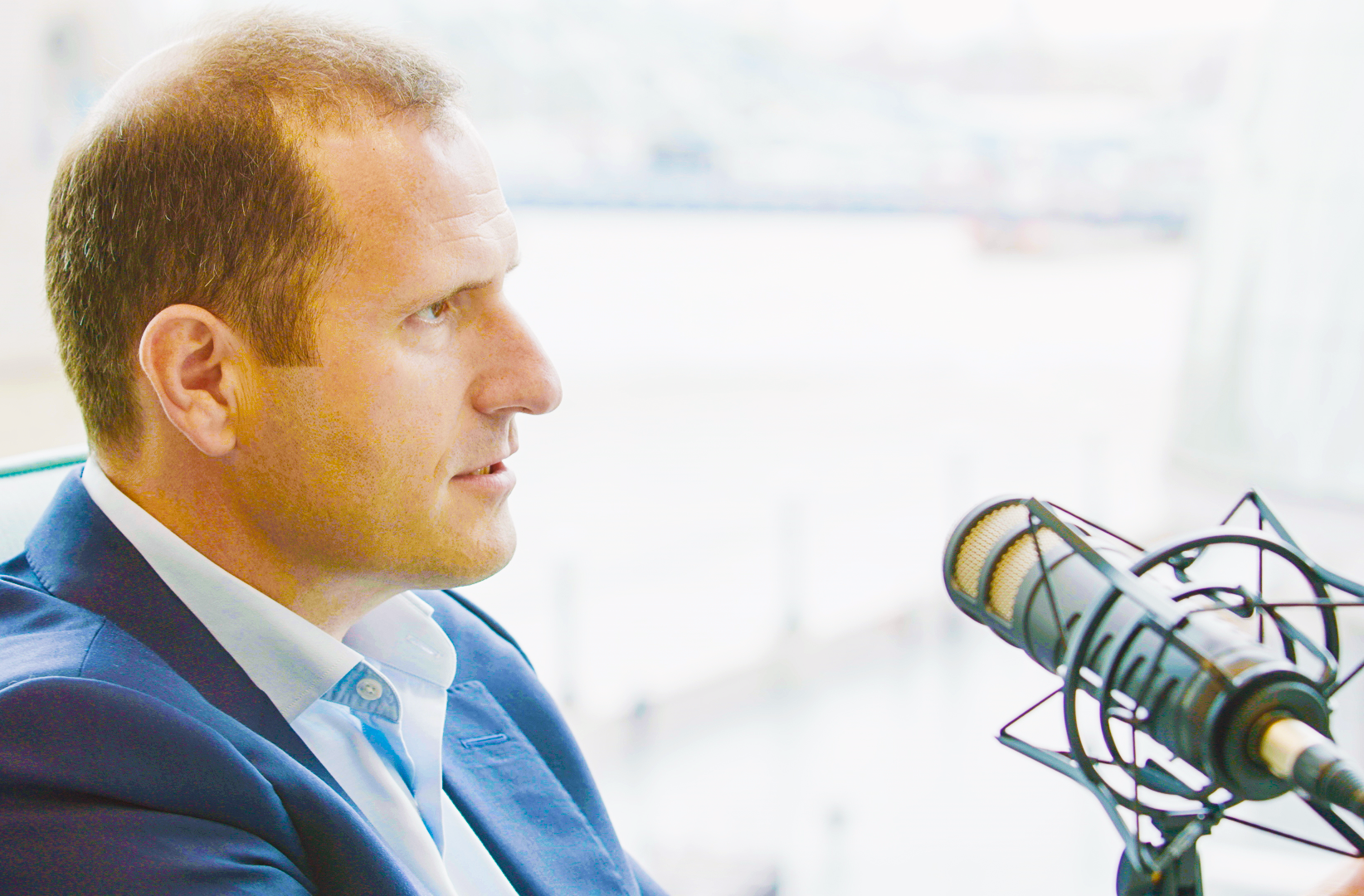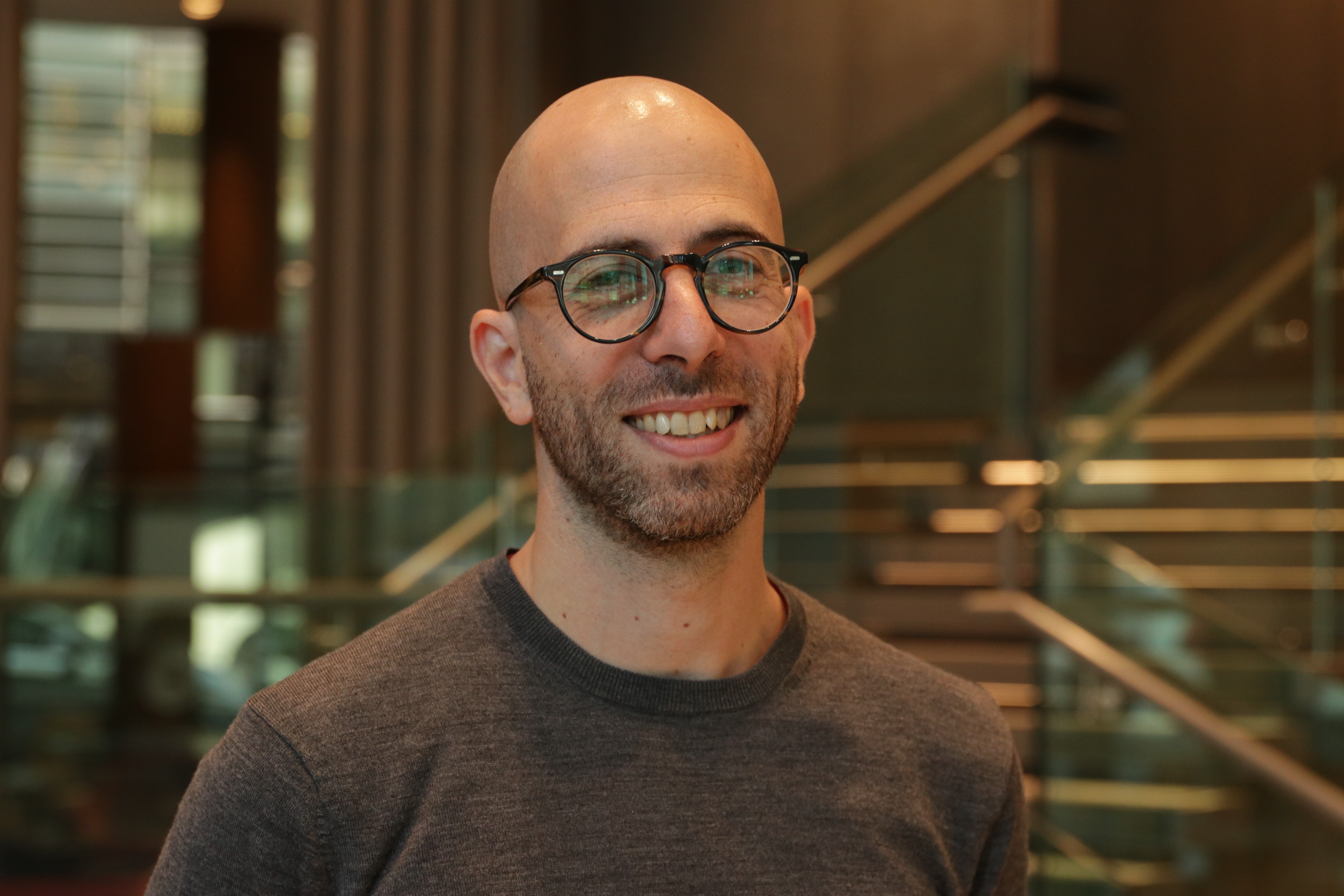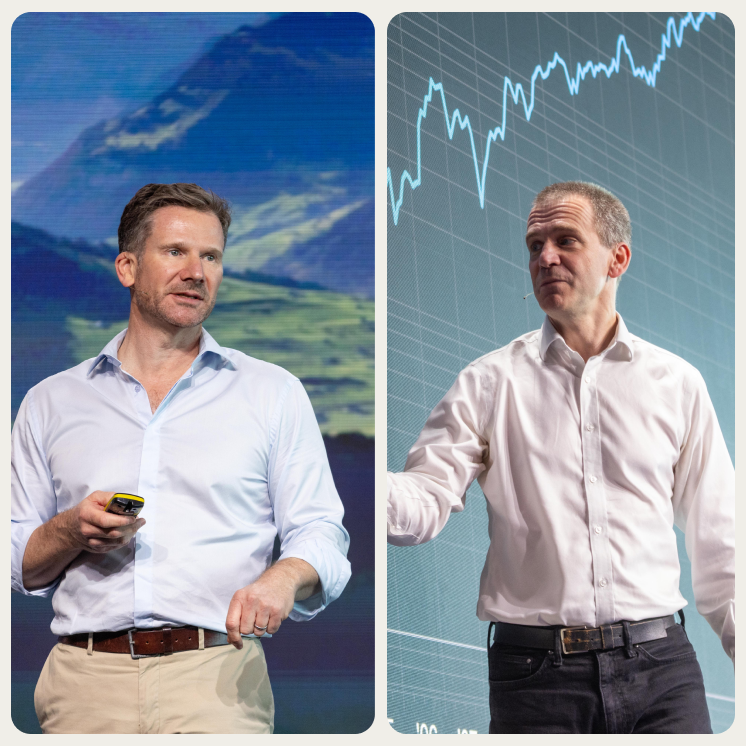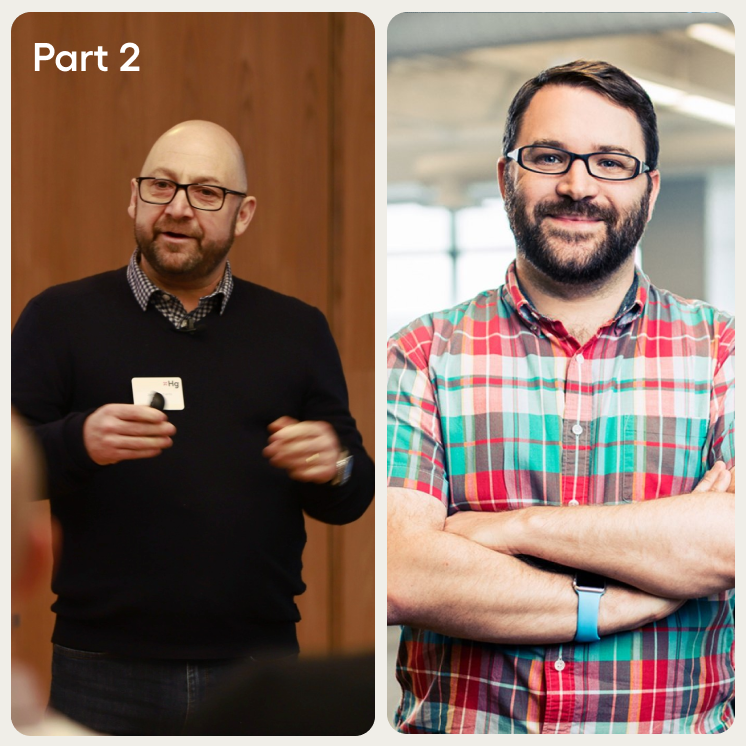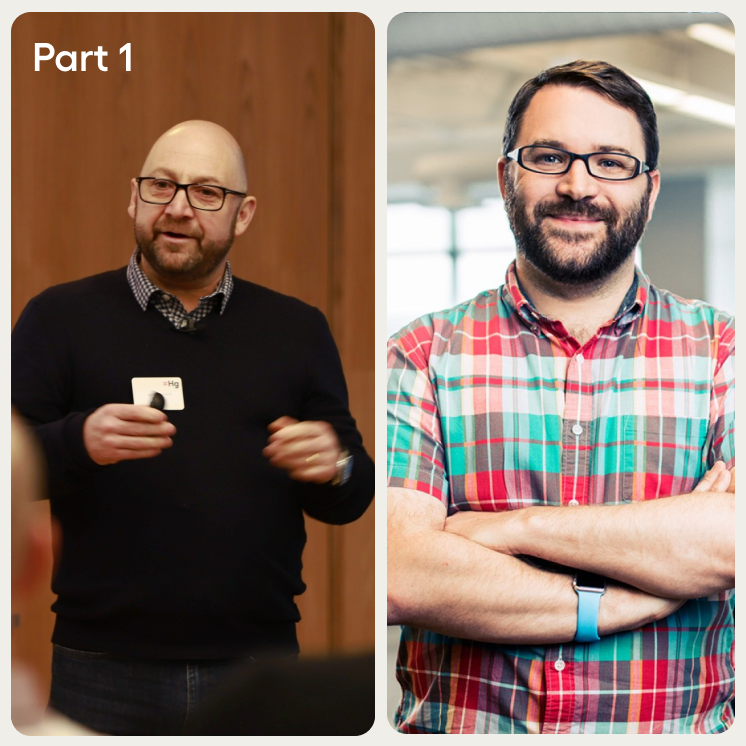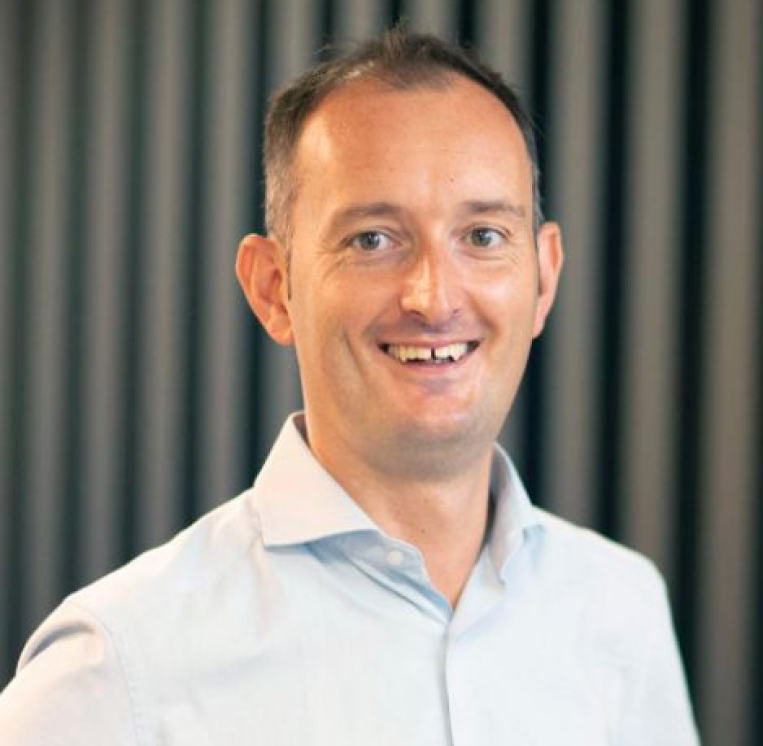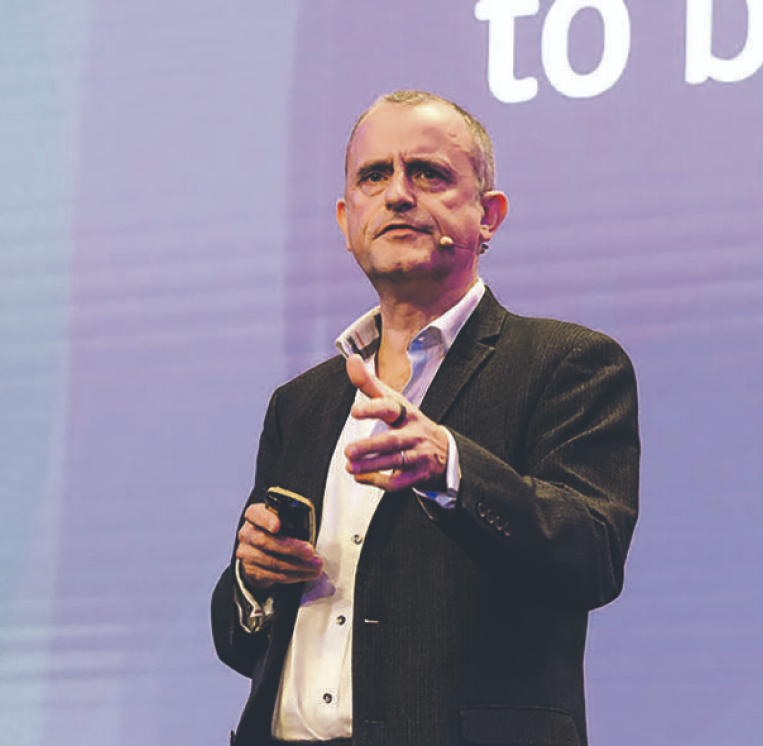Orbit Podcast
Orbit 34
Pace of innovation
The advances in technology on the clinical side of healthcare were shown convincingly in the speed of our response to Covid and in the new discoveries and improvements we continue to see.
Covid may have also had a part to play on the administrative side - breaking down old habits and prompting the green shoots of innovation - but there is still a long way to go as legacy systems continue to be expensive, opaque and inefficient.
In both cases, there is a huge opportunity for new ideas, new entrants and new investment. This expands from the traditional centre to prevention and lifestyle change too.
Hg’s Nick Crowne speaks to Rod O’Reilly, a new advisor to the Hg team. Rod has been a leading figure in almost every aspect of the healthcare ecosystem for many years and is a strong advocate of change, disruption and the quest for greater affordability, access and outcomes.
Listen on:
Episode Transcript
Rod O'Reilly
As I think about unlocking the value of the data, or the role of data, the role of data is paramount. You can't change where and how care is delivered unless you have data.
Nick Crowne
Welcome to Orbit, the Hg Podcast series where we speak with leaders and innovators across technology and discuss the key trends changing how we all do business. My name is Nick Crowne. I'm a member of the healthcare technology team here at Hg in New York.
And I'm privileged to be joined today by Rod O'Reilly, who recently joined Hg as an executive advisor in healthcare. I've been fortunate to have gotten to know Rod over the past several years, and it's my pleasure to welcome him here with me on Orbit. Thanks for joining us, Rod.
Rod O'Reilly
Thank you for having me, Nick.
Nick Crowne
So Rod, maybe as a starting point, it'd be great to give our viewers and listeners some perspective on your career in healthcare technology and how you got to this point.
Rod O'Reilly
Great. So if I go back, when you get to be my age, you're sort of looking back at your career. And I've been in technology or in healthcare technology my whole career. So I started at Digital Equipment, for those of you who might remember Digital Equipment, and Digital Equipment was the competitor to IBM. And then, I moved into healthcare. And I moved into the imaging business at first, and spent a lot of time in imaging. I've spent a lot of time in the EMR business on the provider side. I've been in home care. I've been in lab businesses. I've run payer-oriented businesses, networking businesses, content businesses.
So I sort of bring, or through my career, I've had exposure to the 360 of the healthcare ecosystem, and had the privilege of doing that and watching people trying to help, trying to transform the system.
Since leaving Change Healthcare, I've joined several board of directors roles. And really, I'm trying to work with companies that are trying to figure out a way, again, to carry on and disrupt the system in a way, because we all know it needs to be fixed and really focus on the issues of affordability, access, and outcomes.
Nick Crowne
I want to pick up on that theme. You have, I think, a very interesting perspective in healthcare technology, both in its expansiveness and longitudinal quality, having seen a lot over some period of time. What are some of the areas where you've seen technology have the greatest impact in healthcare?
Rod O'Reilly
I would say it's been on the clinical side, if I had to draw a line. Clinically, if you think about what we're able to do in imaging today, if you think about the different advancements in surgical techniques, if you think about the fact that a vaccine for COVID was produced at the pace that it was produced, if you look at how long in the expectation people have in dealing with chronic diseases such as cancer, there have been huge advances on the clinical side in healthcare. And I think we're really just at the beginning of that. I'm extraordinarily optimistic.
Nick Crowne
And you mentioned clinical. What about the administrative, operational, and financial side of healthcare?
Rod O'Reilly
I would say that's the area where it's been lagging. If I think about innovation in the areas of access, behavioural change, and efficiency and affordability, I mean, we still have a healthcare system where 20 cents on every dollar is to administer a system. We still have healthcare costs being one of the leading causes for bankruptcy in the United States. We still have a system that is opaque and very difficult for people to navigate. We still have a system now where physicians and nurses are leaving because of burnout and because of the administrative burden. So I would say that there has been a lack of innovation and change management of the system on the administrative and financial side.
Nick Crowne
And what do you attribute that to? It's a sort of adage in healthcare, that we have a vision of where the world is going or should be going, but it's easy to conflate momentum with speed. What do you think have been the more significant impediments to greater progress and impact in some of the areas that you highlighted?
Rod O'Reilly
Well, I think one of them is certainly, you have to go back to how are people paid. At the end of the day, in our system in the United States, we have companies that are providing services. And if we look at the incentives and how people are paid, they're often misaligned. Now, that's being addressed slowly with value-based care and with payment towards outcomes. So I'm optimistic we're on the right trajectory, but that's been a fundamental issue.
The second issue has been data itself, the idea that data is an asset and a source of competitive differentiation for a company. So as a result, it should be locked and not shared, and that has stymied innovation.
So I think those two issues have really been really slowing down the pace of innovation for administrative change and really just managing the system itself.
Nick Crowne
And it's interesting, when we think back to, say, HIMSS 10 or 15 years ago, the same themes, buzzwords were as prominent then as they are today. It's interoperability, data analytics, value-based care, patient engagement. How do you reconcile that with a sort of longitudinal perspective around the impact that technology can have in healthcare?
Rod O'Reilly
Well, I think right now, we're at a point now where incentives are truly changing. If you look at the number of people that are under Medicare Advantage programs or under government sponsored healthcare programs, if you look at the number of people who are in value-based care programs, there's a recognition now by payers and providers that the growth of healthcare expenditures is not sustainable, and we need a different model. So there are different innovations, operating model innovations that are occurring now.
Quite frankly, I would argue COVID was an accelerant to that. If you think about some of the innovative ways in which organizations started to work together coming out of COVID, I think it broke down a number of walls that people didn't believe would ever be broken. So I think there's a pace of innovation that's really taking off, and it's really operating model changes. They're fundamental, right?
And you're also now starting to see organizations come into healthcare that don't come with the same biases. You have the Amazons of the world, you have the Walmarts of the world. You have different organizations that are used to treating and managing people and driving behavioural change. So I think that bodes well for the outcome.
Nick Crowne
I wanted to expand on a couple of the themes that you alluded to. The first is around this notion of realizing the full potential in the healthcare ecosystem, the impact of technology, the pace of innovation. What do you think is truly necessary? Is it changes to market structure, incentive, behavioural change on the part of a number of constituents? We work together on the board of Rhapsody, a leading company in the interoperability segment. What are the building blocks or foundational elements from your perspective?
Rod O'Reilly
Well, I think the first thing is we think about maximizing the potential of the ecosystem. I think we have to take a step back and define what that is. What does maximizing potential mean. To me, maximizing potential means that the system itself should provide the best outcomes at the lowest cost. It should create value. And I think that's extraordinarily important.
And as I think about unlocking the value of the data, or the role of data, the role of data is paramount. You can't change where and how care is delivered unless you have data, and interoperability, and the ability to see a longitudinal patient record of if Rod has had services provided in a physician office, at an urgent care facility, in a hospital, there needs to be a longitudinal record of that in order for you to treat me holistically as a person. There needs to be a longitudinal record for people to understand what costs have been incurred. So there's clinically and financially.
I think there needs to be data to help organizations themselves run more efficiently. How do we think about the efficiency of how a hospital runs? How do we think about the efficiency of how a physician office runs? So as we think about that administrative burden, there needs to be data to make the right choices.
So as we think about the shortage of physicians and nurses and how we need to do change management process, that needs to be a data-driven process. So in my mind, data is extraordinarily important and key to this. So as we think about interoperability, and we think about connectivity, and we think about providing data and insights to make better decisions, I think it's just key. It's key to the transformation of the whole system.
Nick Crowne
And Rod, one other theme that you alluded to has been, over the, I think the last 10 to 15 years, the emergence of what I would characterize as non-traditional strategic buyers that have been very active in healthcare. Ranging from the likes of Hearst, Roper, IBM. You alluded to Walmart, Amazon. Microsoft has made some significant bets in healthcare. What do you attribute that to and how do you think that evolves going forward?
Rod O'Reilly
Well, I think if you think about any of those organizations, they've wanted to get into healthcare historically. Healthcare expenditures in the United States are somewhere between 15% and 17% of GDP, and more and more people look like me, and it has a sustainable growth trajectory as you get older.
And if you think about what it's going to take to transform the healthcare system, there's also this understanding now that it needs to be defined more broadly, that it's about wellness, it's about how do you impact behavioural change.
So you start to think about these organizations as data-driven organizations, technology-driven organizations, organizations with platforms and expertise in driving behavioural change, well capitalized, not in a market in any reasonable way that is 20% or approaching 20% of the GDP of the country. And I think their role is only going to get larger, right? And I actually believe it's a good thing, because they have the core competencies required to solve some of these problems.
Nick Crowne
Of addressing the matter of behavioural change across multiple constituencies in healthcare.
Rod O'Reilly
Without a doubt. I mean, if you think about the number one or the... I'll give you an example. One of the biggest issues in healthcare is driving people to change their behaviour. So I think of one of the best things, the best devices in all of healthcare are these glasses. I take them off, I can't see. I put them on, I can see. Adoption is immediate. The outcomes are immediate.
Unfortunately, in healthcare, that's not the way it works. All of us need to run, have a more healthy lifestyle. We need to do things. It's not as immediate. So having organizations that have an expertise in helping people change their behaviour, I think is going to be extraordinarily important. No matter how you change the incentives, if people don't change their lifestyles, the cost doesn't go down. So, I think it's going to be a core competency.
And as you start to even think about the expansion of different data sources, social determinants of health, think about wellness data and monitoring, it's beyond me that we are now just entering into a world where there are payer contracts, where people acknowledge that the economic situation someone happens to be in is one of the largest drivers of adherence, right? That if you live in certain areas, in certain zip codes, you have health issues just driven by your personal economics. Things need to change to reflect that. That data is now being brought together.
So this is really about behavioural change, big data, bringing things together to solve a problem. And the pace at which this is being adopted is extraordinarily quick. I'm very optimistic about it.
Nick Crowne
Rod, I wanted to close with your thoughts on a topic that I think has the potential to bring together a number of those big themes and overarching changes in healthcare, and that's the potential of generative AI and what it could mean for healthcare.
You began with, from a historical perspective, technology has had the greatest impact in the clinical arena, but many people are thinking about the potential of AI in more operational, financial, administrative terms. What are your thoughts on what the future could hold?
Rod O'Reilly
Well, it's interesting. So I've been involved... I mean, this has certainly hit the front pages with Microsoft and Nuance and ChatGPT and Google and Bard. It seems to be what everyone's talking about. AI and the role of AI, say in imaging, those debates are three, four years old, right?
I personally believe that the first use cases we're going to see of this technology is really going to be in the areas of patient engagement; administrative processes, like documentation; revenue cycle management; targeting, as we think about people entering into full dual programs or Medicare and Medicaid, there's some targeting to make sure that you apply the resources to the right populations to provide help. I think all of those are areas in which AI is going to first have a very large impact.
I also think that AI and what we're able to do now is going to start to unlock the value of some of the data that's resonant within the EMRs themselves, right? I think right now we have systems that were built to document processes, as opposed to bringing it all together.
And then, finally, I think that AI and the power of these new technologies is removing barriers to entry for innovation. You simply don't need as large an R&D team anymore. You simply don't need as large a marketing team. So as you think about small companies entering healthcare to drive innovation, I think you're going to see those barriers to entry come down.
What I don't believe is that in the near term, they're going to have as great an impact on clinical, and the practice of medicine. It's going to be more of the administration, probably ending at UM and care planning. They're not going to replace a radiologist. They're not going to replace a doctor. In fact, I would argue that as you think about bringing all data together, and bringing it to a problem, and solving a problem, we don't have a system that's better than a primary care doc that's focused. So why don't we use these enabling technologies to allow those primary care doctors and our doctors to focus on the patient? And I think that's the next evolution of this technology.
Nick Crowne
And just to close, at the outset, you emphasize important objectives about the role of technology and healthcare around access, the cost of care, health equity. Healthcare has been unique in that the impact of technology and innovation has not necessarily led to a decrease in the cost of care. If anything, it has led to arguably higher prices over time. Do you think the potential impact of generative AI will... How do you think the cost of care is likely to evolve?
Rod O'Reilly
Well, I think that's one of the biggest issues right now. The cost of care, well, it has slowed as of late, to be candid, but it's still on a trajectory that's not sustainable. I think if we could take the 20% of healthcare expenditure that's used for administration and reduce that significantly, I think you could see quite a benefit, right?
If we could use these technologies to cause people, or allow people to engage their physicians and change their behaviour and enter into and manage their own care, that will significantly reduce the cost of the system. So I think there's a great opportunity to reduce the cost of the system through engaging people, changing behaviour, allowing people to have better access, and at the same time, reducing administrative processes on the backend. I think adherence and people actually being able to see a doctor, and freeing up the time for those doctors to actually provide the guidance and counsel and practice medicine is going to be one of the things that we're really going to see unlock over the next five years.
Nick Crowne
Rod, I wanted to thank you for joining us on Orbit and for a thought-provoking and stimulating discussion.
Very fortunate to have you as part of our team and look forward to engaging more deeply with you on the topics we discussed in the years to come.
Rod O'Reilly
Well, thank you very much, Nick. And I can't think of a better time to be in healthcare. The whole system is transforming. This is an industry that has the greatest impact on people, has the greatest impact when they're most vulnerable, and I can't think of a better place for people to spend their time and their energy to make a difference in the world.
Orbit episodes
Orbit Podcast
A certain level of chaos is healthy: Franz Faerber on fighting bureaucracy and the importance of deep domain knowledge in AI
Episode detailsOrbit Podcast
The corporate immune system: Google Cloud's Daniël Rood on building Europe's first AI team
Episode detailsOrbit Podcast
Skin in the game: Professor Neil Lawrence on vulnerability, accountability and why the next generation will thrive.
Episode detailsOrbit Podcast
The 3 speed problem: Oji Udezue on CPO leadership in the age of unlimited engineering
Episode detailsOrbit Podcast
Fevered determination: Building Zalos from zero to enterprise in 5 weeks
Episode detailsOrbit Podcast
Trust, velocity, and building the Answer Engine: Dmitry Shevelenko of Perplexity speaks to Farouk Hussein
Episode detailsOrbit Podcast
The long road to the last mile: Nic Humphries and Matthew Brockman reflect on 25 years of Hg
Episode detailsOrbit Podcast
AI, Control Points, and the Next Wave of Vertical SaaS with Tidemark Capital founder, Dave Yuan
Episode detailsOrbit Podcast
A glimpse of the next generation: Zoe Zhao and Annalise Dragic of Azlin Software
Episode detailsOrbit Podcast
The business case for AI: Brent Hayward of Salesforce, David Carmona of Microsoft & Nagraj Kashyap of Touring Capital
Episode detailsOrbit Podcast
Mastering the billion-dollar software playbook: Joe Lonsdale of 8VC & Eric Poirier of Addepar
Episode detailsOrbit Podcast










